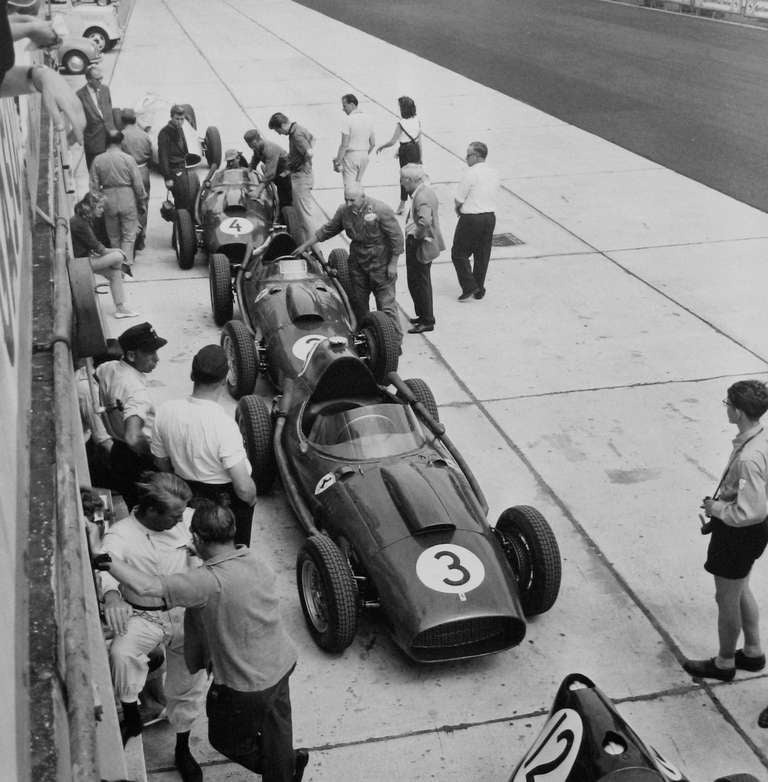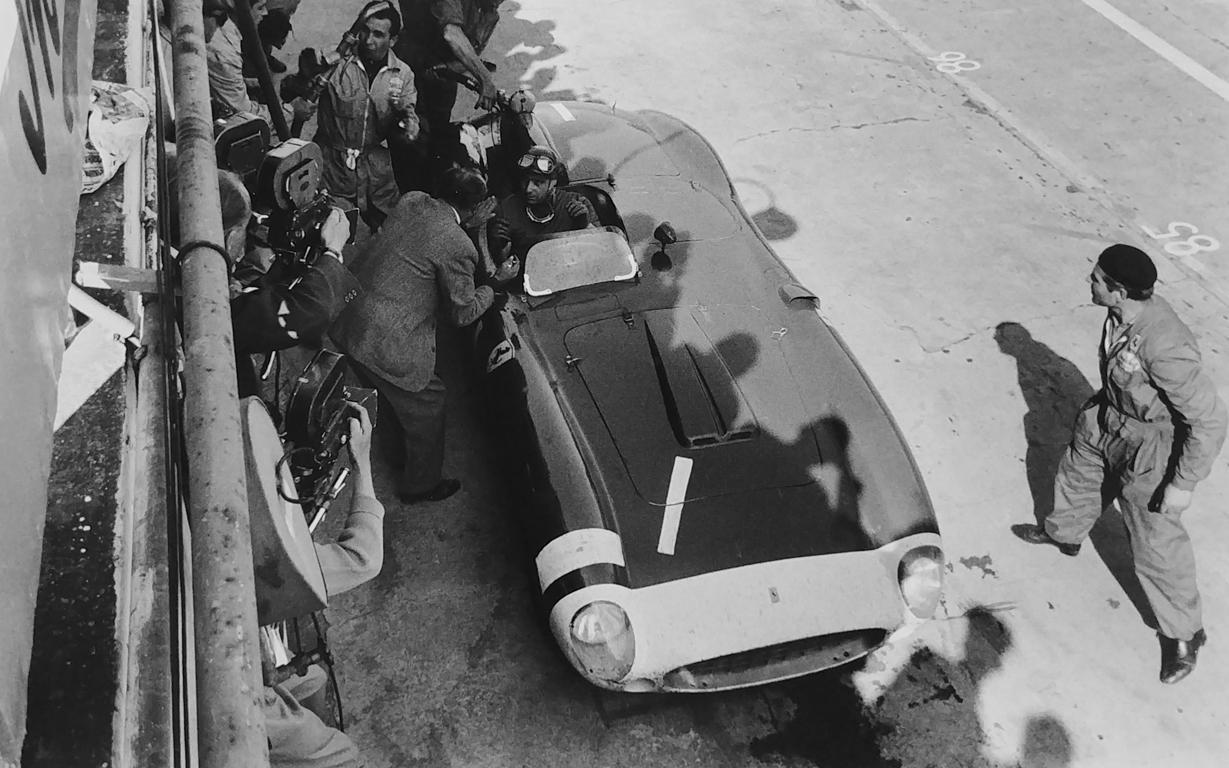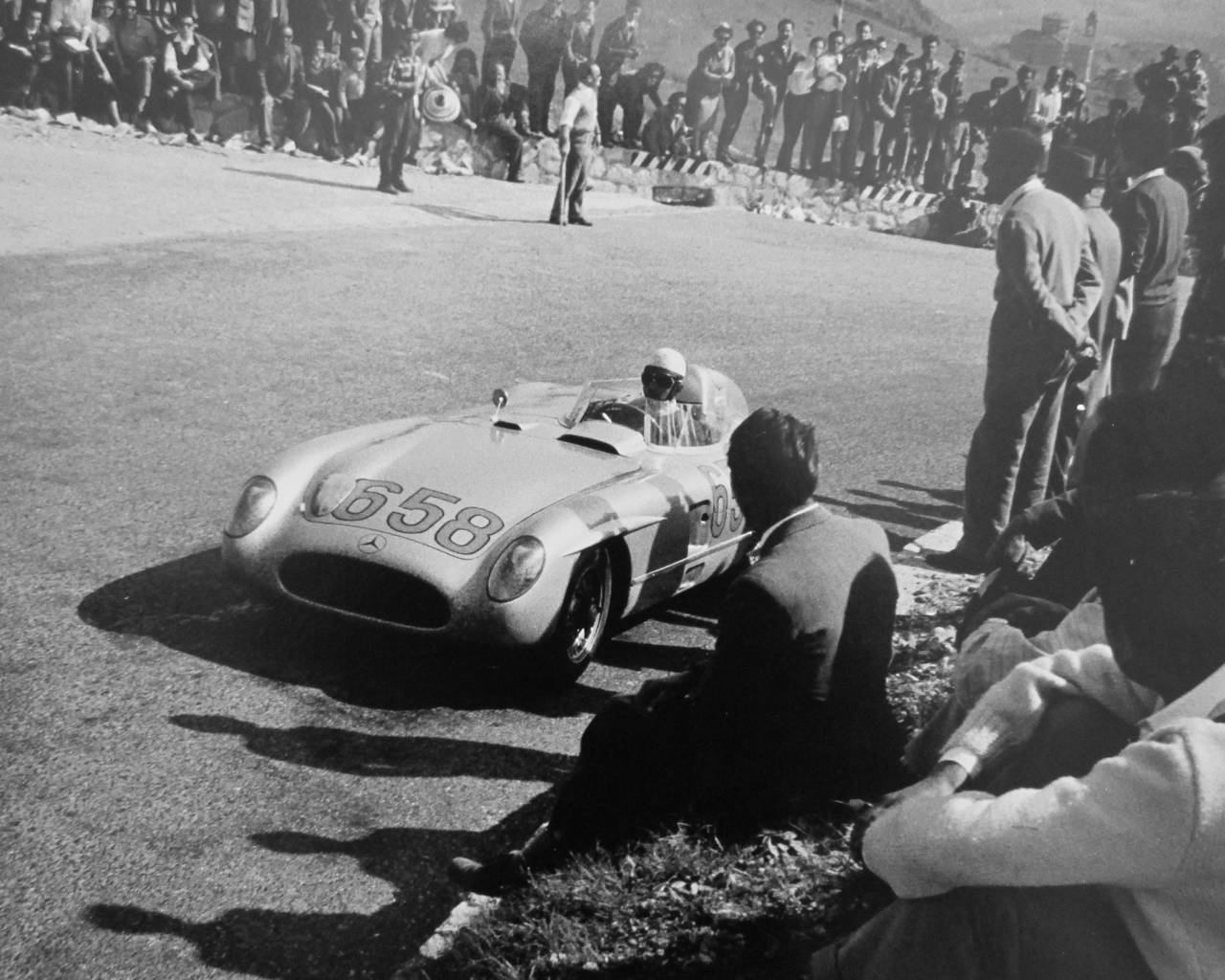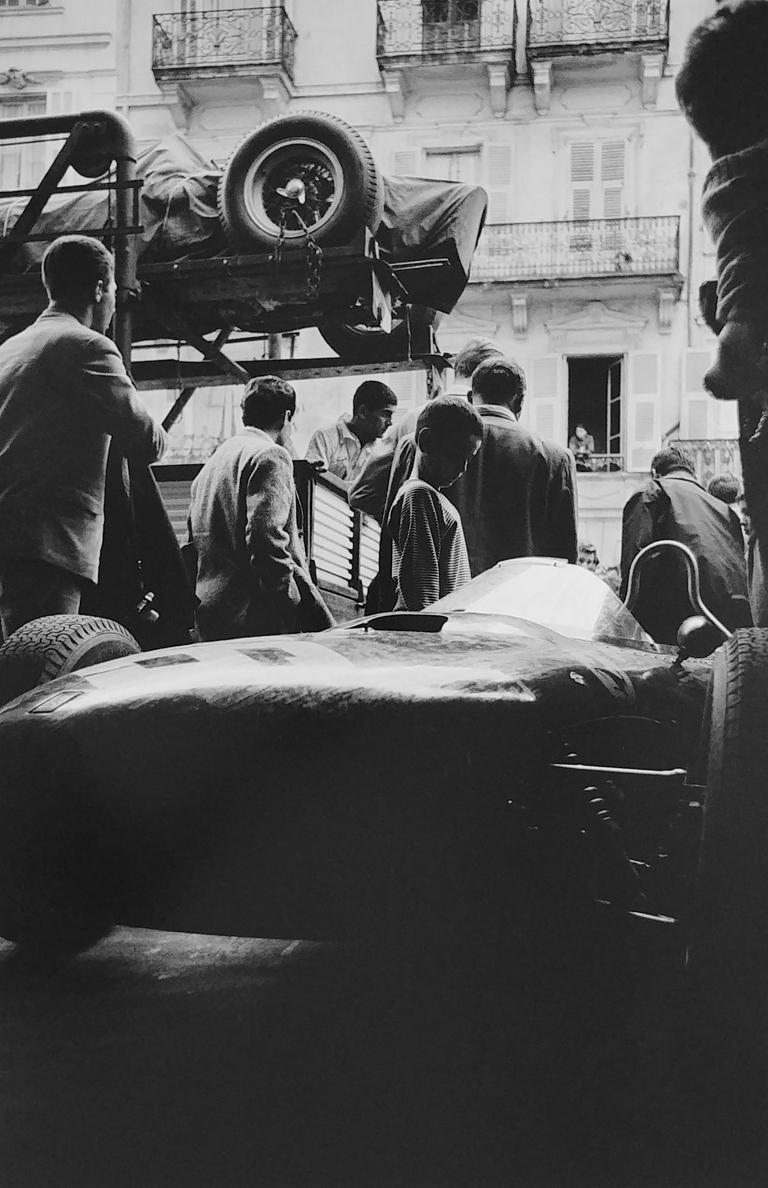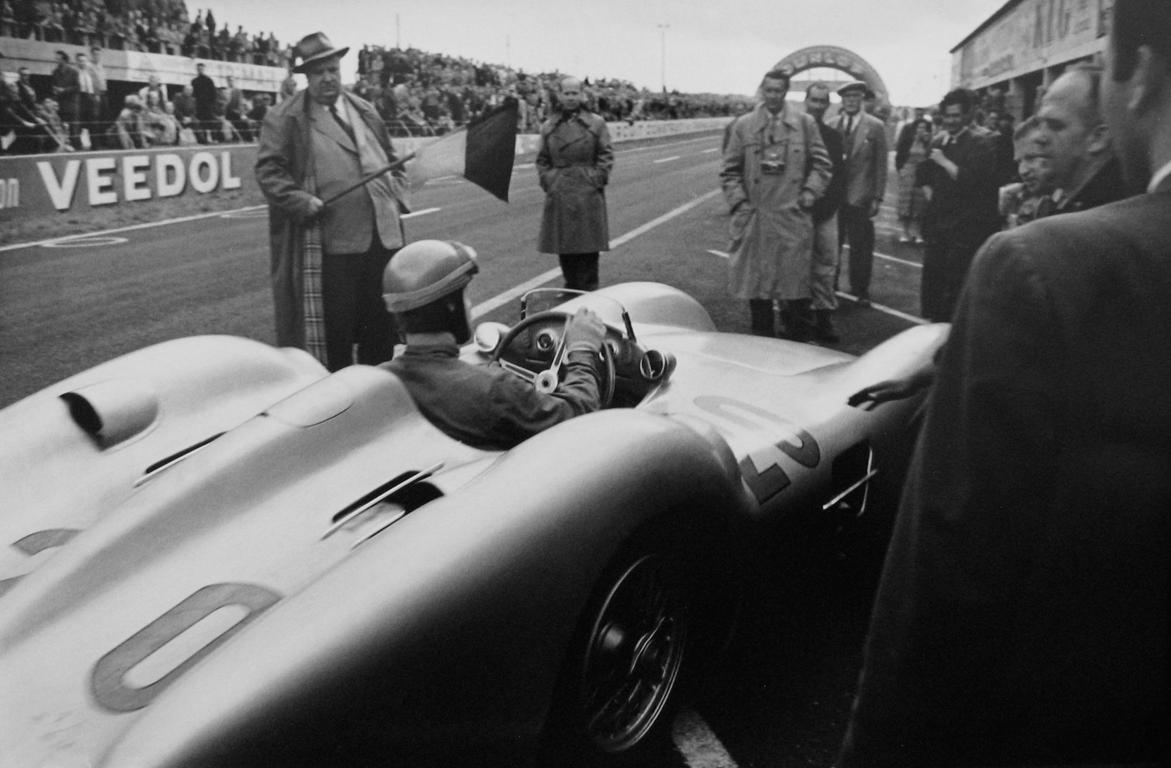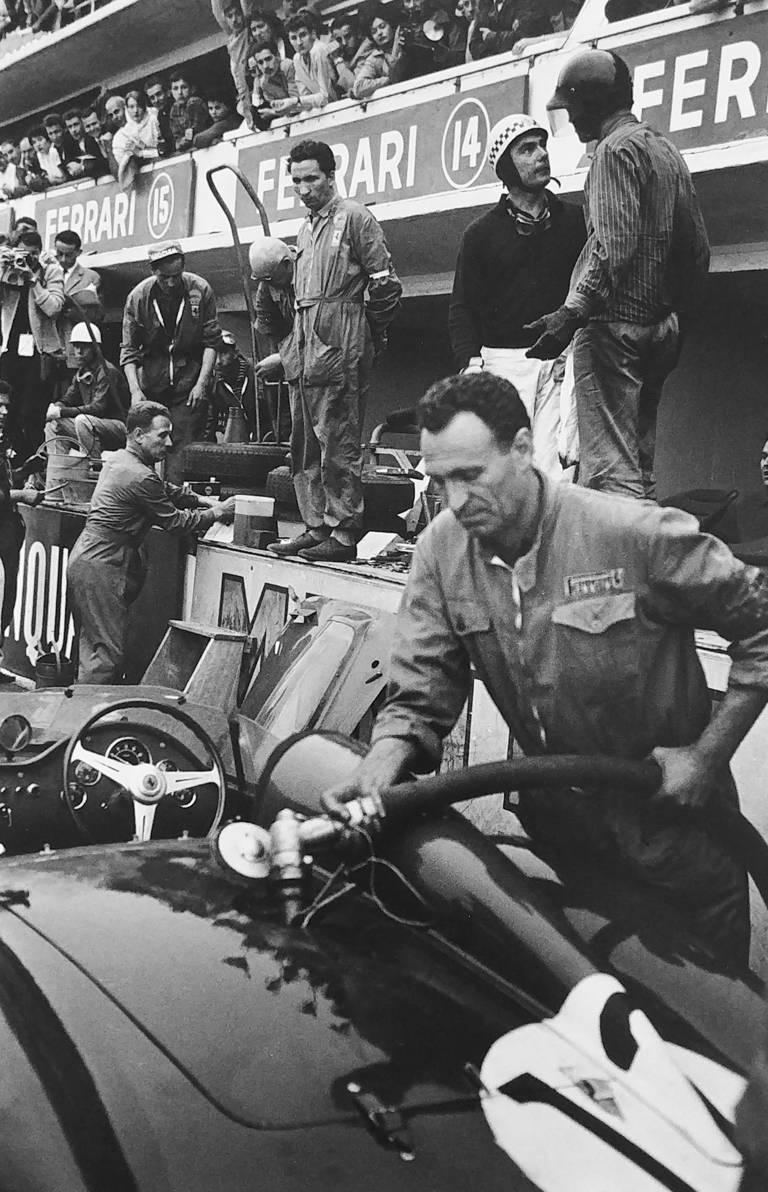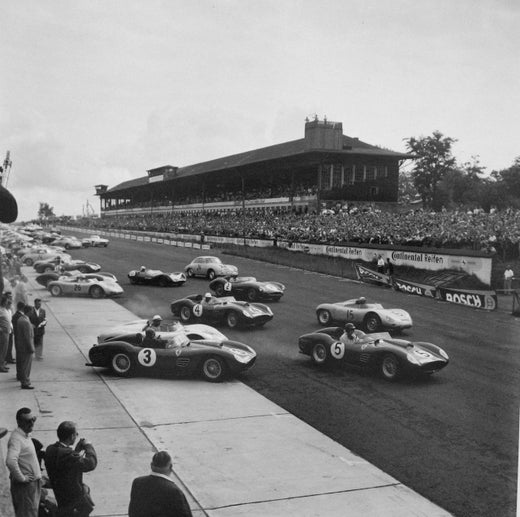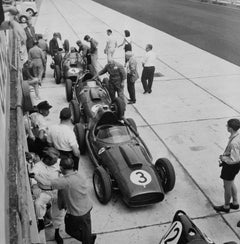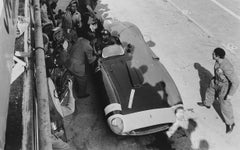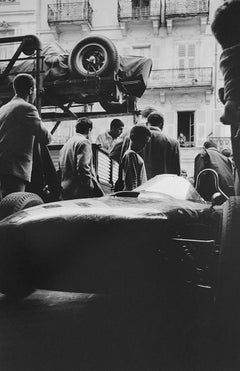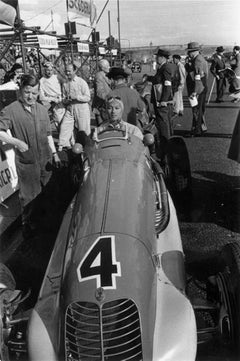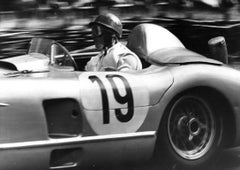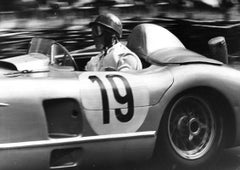Jesse AlexanderTwo 356A Factory Cars in Pits, 1000 KM Race1959
1959
About the Item
- Creator:Jesse Alexander (American)
- Creation Year:1959
- Dimensions:Height: 19 in (48.26 cm)Width: 13 in (33.02 cm)Depth: 0.1 in (2.54 mm)
- Medium:
- Movement & Style:
- Period:
- Condition:
- Gallery Location:Denton, TX
- Reference Number:Seller: 128491stDibs: LU2152779891
Jesse Alexander
Jesse Alexander is considered one of the greatest race car photographers in history. His images of vintage automobiles and the people who gave them life, captured from the European race circuit during the 1950s and 60s, are collected and exhibited by museums and galleries throughout the world. Jesse Alexander has been involved in photography, and especially motorsports photography, since the early 1950s, when he covered the original Mexican Road Race. He then spent many years in Europe covering Formula One and the famous long-distance sports car races — the 24 Hours of Le Mans, the Mille Miglia and Targa Florio. In that period of time, he also photographed theater and music personalities for the New York Times. His work is held by numerous private collectors and has been exhibited in museums in the United States, including the Birmingham Museum of Art, the Akron Museum and the Santa Barbara Museum of Art.
(Biography provided by PDNB Gallery)
- ShippingRetrieving quote...Shipping from: Denton, TX
- Return Policy
More From This Seller
View All1950s Modern Black and White Photography
Silver Gelatin
20th Century Modern Black and White Photography
Silver Gelatin
20th Century Modern Black and White Photography
Silver Gelatin
20th Century Modern Black and White Photography
Archival Pigment
20th Century Modern Black and White Photography
Silver Gelatin
20th Century Modern Black and White Photography
Silver Gelatin
You May Also Like
1940s Photography
Silver Gelatin
1950s Modern Black and White Photography
Photographic Paper, Silver Gelatin
1950s Modern Black and White Photography
Photographic Paper, Silver Gelatin
1950s Photography
Silver Gelatin
1960s Contemporary Color Photography
Archival Ink, Archival Paper, Archival Pigment
1950s Black and White Photography
Platinum
Read More
Photographer to Know: Harold Edgerton
Edgerton captured motion like no other, yet he considered himself a scientist — not an artist.
These 9 Galleries Have Helped Turn the Lone Star State into a Thriving Art Hub
The Texas art scene is booming, thanks to trailblazing gallerists and their savvy collectors.
